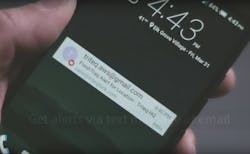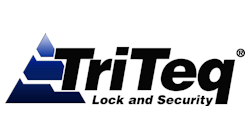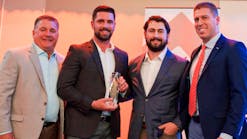There is a lot riding on the safe handling of micro market food. Concerns about bacteria and mold can prevent sales. Lawsuits from food borne illnesses can destroy businesses. Since food represents more than a quarter of sales in most micro market locations, it is imperative to put the consumer's mind at ease.
Craig Hunt, chief technology officer at Imperial, a Tulsa, OK-based vending, micro market and office coffee service operation, utilizes temperature logging in every step of the food handling process to proactively assure customers about food safety and quality. Adding remote temperature monitoring to the automatic locks on food coolers in micro markets was the last piece he needed to complete the ecosystem of food safety.
Need for temperature logs increases
As the number of micro markets Imperial was installing increased, so did the volume of food being transported, delivered and sold. Summers are hot in the Oklahoma area, which means Imperial needs to be extra careful keeping the food it sells at the proper temperature. It was becoming too big a job to do manually, and the company wanted a better way to ensure it was delivering the best quality food to its customers. That was when Hunt was tasked with finding a way technology could aid in monitoring temperature of the food as it moved through the production, picking, delivery and purchase process. The first three were straight forward. Thermometers in the commissary and warehouse coolers already monitored and recorded temperatures automatically. Imperial worked with the GPS services it contracts with to track the internal temperatures in its delivery vehicles. However, a good solution did not exist for knowing the temperature of the food in the micro market cooler between services. This not only created a gap in the cycle of food safety, but posed a problem when several Arkansas locations needed regular temperature logs.
Lock evolution
"We designed our own lock system first," said Hunt." It worked, but it wasn't scalable. Then we worked with Calin and Bill of TriTeq on the issue. We have worked through several iterations and it's been very effective."
The FreshIQ lock automatically records the temperature of the cooler as well as other status updates, such as whether the door is open and if the network connection is lost. It will also send alerts if there is a problem. "If I get an alert, I can immediately log on and check out what's happened," said Hunt. He can do this from a mobile device or computer browser because the system is cloud-based. "I really like that feature," said Hunt. The power for the lock is also built into the cooler, so there is no possibility of lock out due to a dying battery.
Easily meeting needs and peace of mind
The ease of automatic data recording has ensured Imperial can keep the dozen or so facilities that require a monthly log of the cooler temperatures happy. "The TriTeq lock has made it easy," he said. That data also provides peace of mind for the company. "The monitoring gives us the ability to go back and pull those logs to show that the food was never out of temperature," said Hunt. "It gives us a leg to stand on if there was ever an issue."
Unexpected benefits
Hunt finds that the temperature logging helps diagnose issues that Imperial previously had to reply on a location to discover. "If the internet connection was lost or power went off, we wouldn't know – we were blind to those events before and relied on the customer to notify us," he said. "Now with the cloud, we can see it in real time."
In another instance, a new location was having an abnormal number of lock outs. Hunt looked carefully at the data and realized the problem almost immediate. "Once I looked at the alert page, I could see that the door was not actually shutting all the way," he said, "based on it never getting down in temperature. It would cool enough to recover, but then when they hit it with high volume, a lot of open and close, open and close as they were buying stuff, it would just never get back down to temp and lock out." Imperial technicians adjusted the door, which solved the problem.
Without web-based temperature recording from micro market food coolers, operators are working blind. Cloud-based data logging provides clarity ensuring unbroken food safety processes and hard data about temperature. It's a great addition Hunt truly believes in "We monitored temperature everywhere else, so now with TriTeq, we can monitor temperature in the cooler, closing the gap in the food quality and safety ecosystem."






